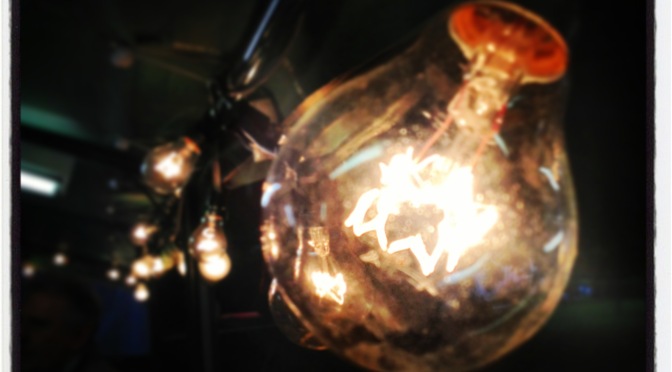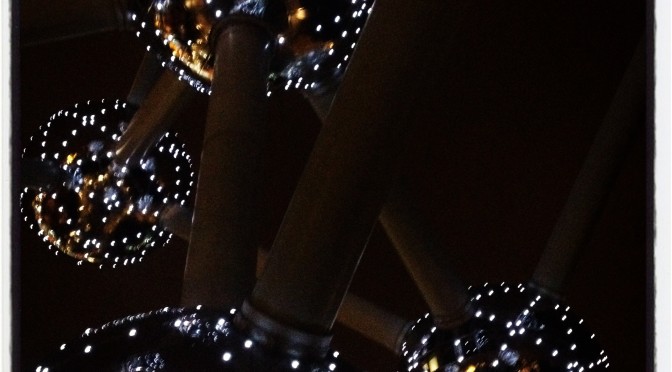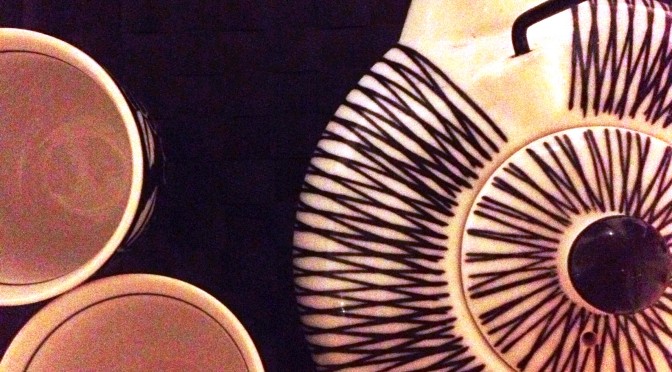Dusk.
Snow sifted down outside. It sifted past the third-floor window where a headphone-clad Emilie sat sketching, oblivious to the white flakes, and to the raised voices of her parents in the room next door. It sifted past the upturned, bearded faces of the old twins in the apartment below, who clung to each other, rapt. It sifted past José’s forgotten, frostbitten herbs resting on a windowsill that had not been lit from inside for weeks now. And it sifted down to the square of patio where Marc’s shadow fell, which, unmoving, belied the speed of his fingers spidering across the keyboard.
Muted sounds: the ding of a tram, a metal whisk in a glass bowl, a dog’s bark; all muted by the soft, perfect snow.
As if powered by the hood of silence, the slideshow in Marc’s mind had gathered speed until he had thrown his pencil aside and advanced to his computer, previously a fearful thing, a threatening thing, but this evening a channelling thing, a converter of these flying, fleeting images into words—into solid, sellable words.
For too many months the milky square of the computer screen had stared at him: empty months. Now, its white glow made him a silhouette, and he sat, unmoving apart from his fingers.
No movement above, either, but dust motes settling in the snow-light on José’s abandoned guitar. Further up, the twins turned their faces to each other, one mooning dreamily, the other a gawping mug. High upstairs, sobbing; but also the slick of a page turning, the scratch of a pen.
The falling snow seemed to change the building into a chimney, outside noises dampened and those inside amplified; and in amongst the funnelled, flicking pictures, Marc’s neighbours, too long ignored by him, began to solidify into crystal focus.
His hands worked furiously; a frenzied silkworm spinning lines, embroidering the zipping images into a digital tapestry—not to be unpicked this time but to be anchor knotted, preserved. A matrix unspooled before his eyes: black on white, a reflected negative of the fine-spun snowflakes drifting down beyond the glass.
Suddenly Marc stopped, the silence broken. He cocked his head. A sad, gentle melody had begun to tremble in the gaps between the floorboards, and José was lulling along to the tune in his wistful voice. The twins, hearing their musical friend back after all this time, forgot the snow for a second and why he’d been away and grinned at one another, each clutching the other by the elbows as happiness spilled out of them in noiseless laughter. Above them, Emilie raised one headphone to enjoy the silence of the flittering snow, but instead heard her father crying, and let it snap back into place.
Marc sat back, flexed his wrists, and in the middle of that great white canvas, that pristine, terrifying, optionless Big Empty, he could see a tiny germ greening its way through the crust.
This story was written as an inspiration piece for Mash Stories, a short story competition which gives writers 3 random key words or phrases, and a 500-word limit, to create their best pieces of flash fiction. The key words for this piece were: happiness – mug – converter.




